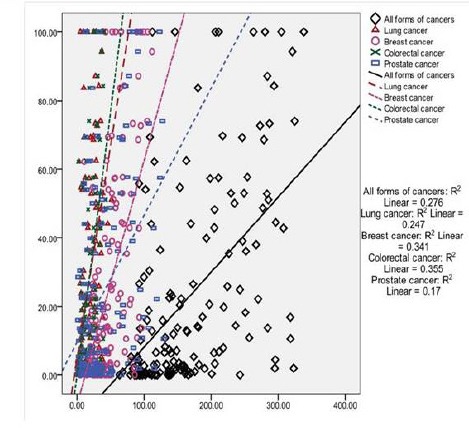Here’s a summary of the most interesting research I saw this month:
Over 13% of cardiovascular deaths among 55–64-year-olds related to plastic1
The research linked phthalates in plastic to CV deaths, especially in countries with developing plastic industries. The 356,238 deaths amount to 10.473 million YLL (Years of Life Lost) which cost to up to $3.74 trillion depending on what estimate is used.
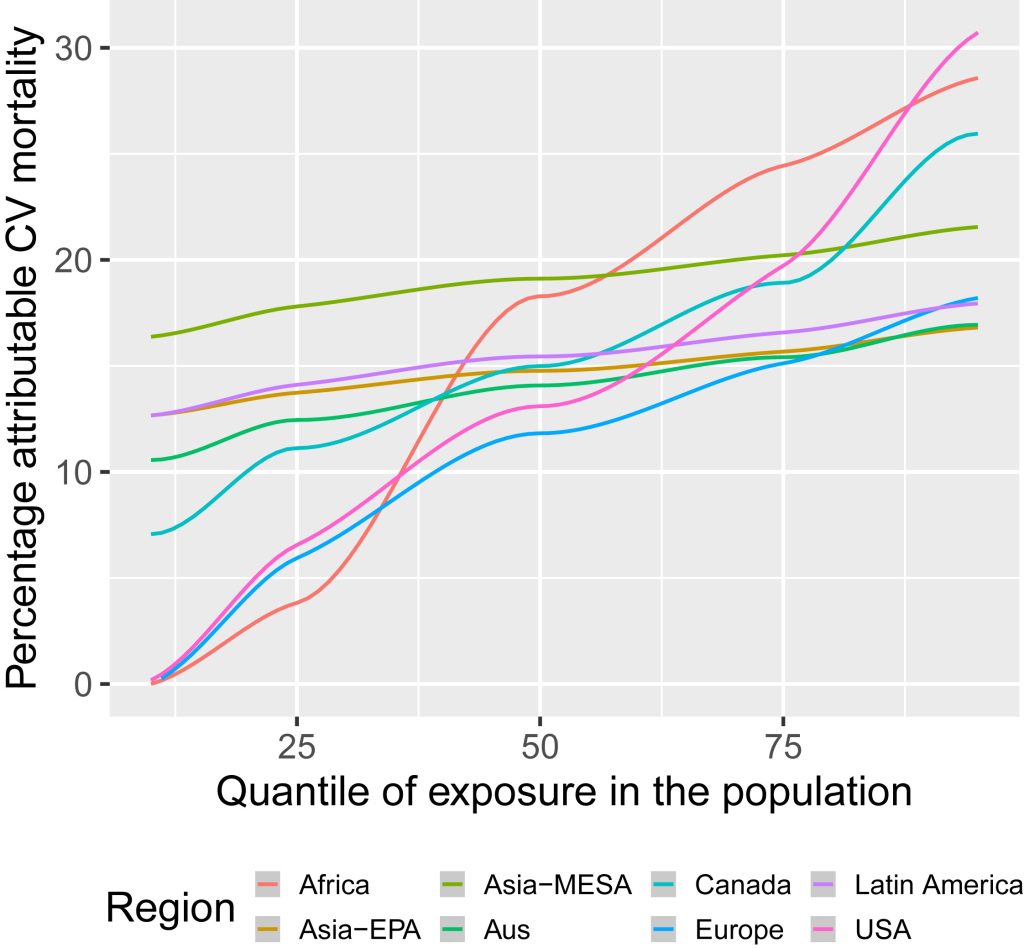
My comment: Our understanding of the health burden of plastic grows every month, while regulation lags behind in most countries. In the future, people will look back on us and be shocked that we knew so much and did so little.
Green tea mitigates the hallmarks of aging2
Human studies have consistently linked GT consumption to improved cognitive function, cardiovascular health, muscle preservation, and metabolic regulation.
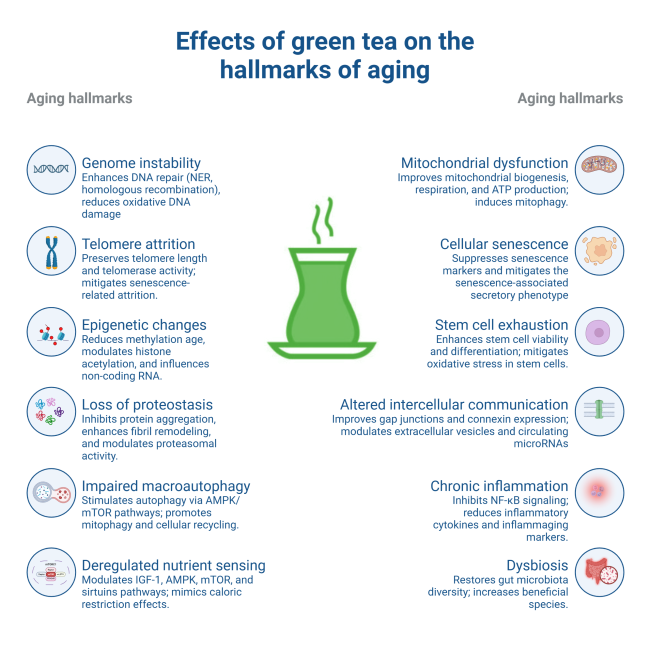
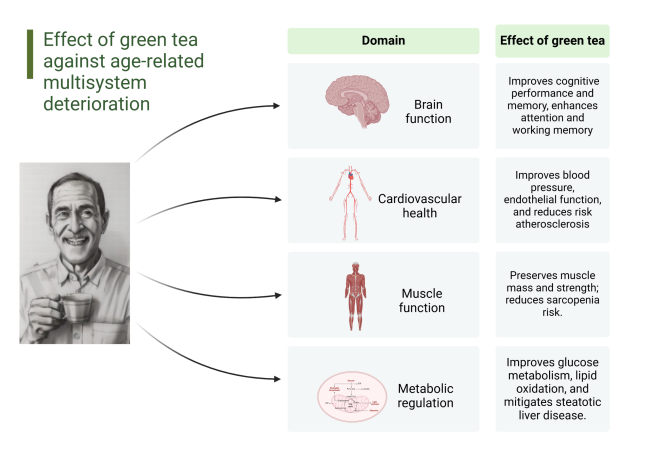
My comment: This review provides 181 references organized into 12 sections, and the summary images above are very nice.
Fisetin may fight blood vessel calcification3
Fisetin was shown to inactivate p38 MAPK signaling and therefore inhibit vascular calcification, as shown below:
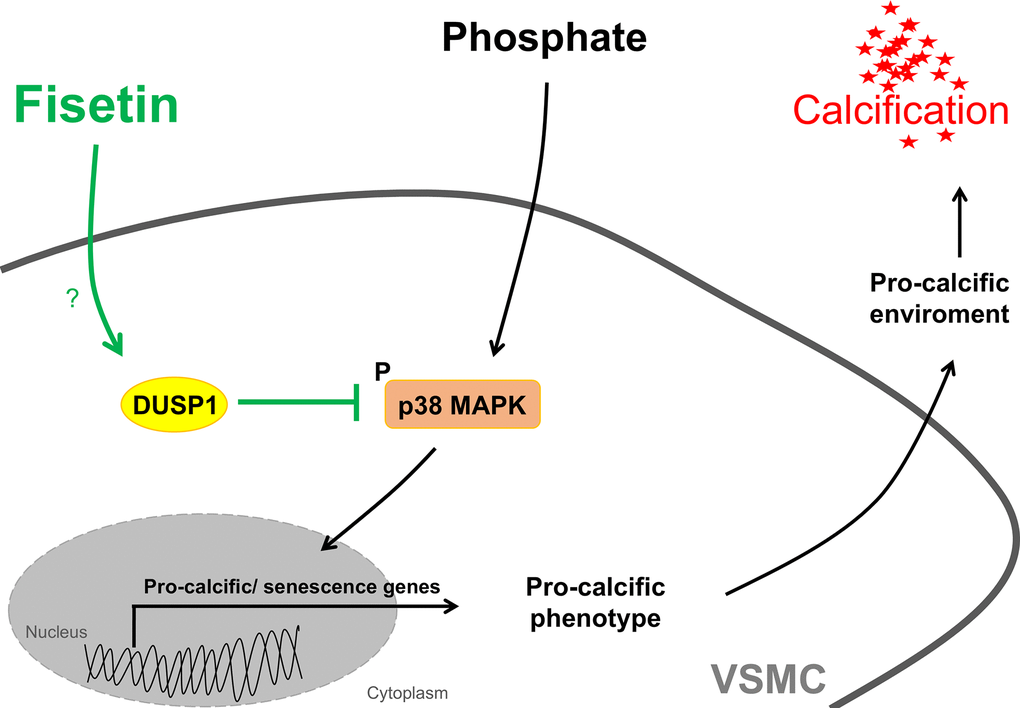
My comment: Fisetin, found mostly in strawberries but also in smaller amounts in apples, is on a lot of radars as an anti-senescent. It is the subject of an eagerly-awaited ongoing study by Mayo Clinic, and many people already take it in supplement form. It’s great to have this mechanistic evidence to add to the observational data.
OS-01 peptide may reduce systemic inflammation4
A pilot study on topical appplication of OS-01 (the peptide used in OneSkin) reduced pro-inflammatory cytokines in the blood compared to the control group. It also slowed aging according to the GlycanAge biological age calculator:

My comment: Firstly, this research was done by the company that sells the product, so it needs to be viewed with extra skepticism. To be blunt, there is a lot of money to be made by them falsifying and cherrypicking evidence. Having said that, I find it fascinating to see so much research in recent years about topical products like sunscreens affecting the blood, and I would love to see independent research on OS-01 to validate these results.
Erythritol increases oxidative stress and reduces nitric oxide production in brain cells5
An announcement was made that these findings will be presented at the 2025 American Physiology Summit.
My comment: Erythritol is often marketed as a healthy sweetener, and it commonly paired with stevia as the flavours compliment each other.
We don’t have the published research yet so it is hard to know how seriously to take it, but the American Physiological Society are obviously confident enough to do this announcement, and existing research links erythritol to adverse cardiac events like myocardial infarction and stroke6 as well as cancer7, so this evidence is not hard to believe.
Air filters in classrooms reduce sick days by more than 10 per cent8
This is a randomized controlled trial that shows a real-world effect on attendance which might be due to them reducing levels of air pollution, pollen, pathogens, or all three.
My comment: Air quality is very important for health, with small differences in quality adding up over time. Filtration and ventilation are an important part of the equation, as well as reducing pollutants when we can. I went into more detail about air quality and how to improve it in my post The Risks of Paint9.
- https://www.thelancet.com/journals/ebiom/article/PIIS2352-3964(25)00174-4/fulltext#fig1 ↩︎
- https://www.aginganddisease.org/EN/10.14336/AD.2025.0398#10 ↩︎
- https://www.aging-us.com/article/206233/text ↩︎
- https://pmc.ncbi.nlm.nih.gov/articles/PMC11975214/#jocd70169-sec-0023 ↩︎
- https://www.physiology.org/detail/news/2025/04/25/popular-sugar-substitute-may-harm-brain-and-heart-health?SSO=Y ↩︎
- https://pubmed.ncbi.nlm.nih.gov/36849732/ ↩︎
- https://pubmed.ncbi.nlm.nih.gov/39339699/ ↩︎
- https://www.newscientist.com/article/2478252-air-filters-in-classrooms-reduce-sick-days-by-more-than-10-per-cent/ ↩︎
- https://klaustownsend.com/the-risks-of-paint/ ↩︎
